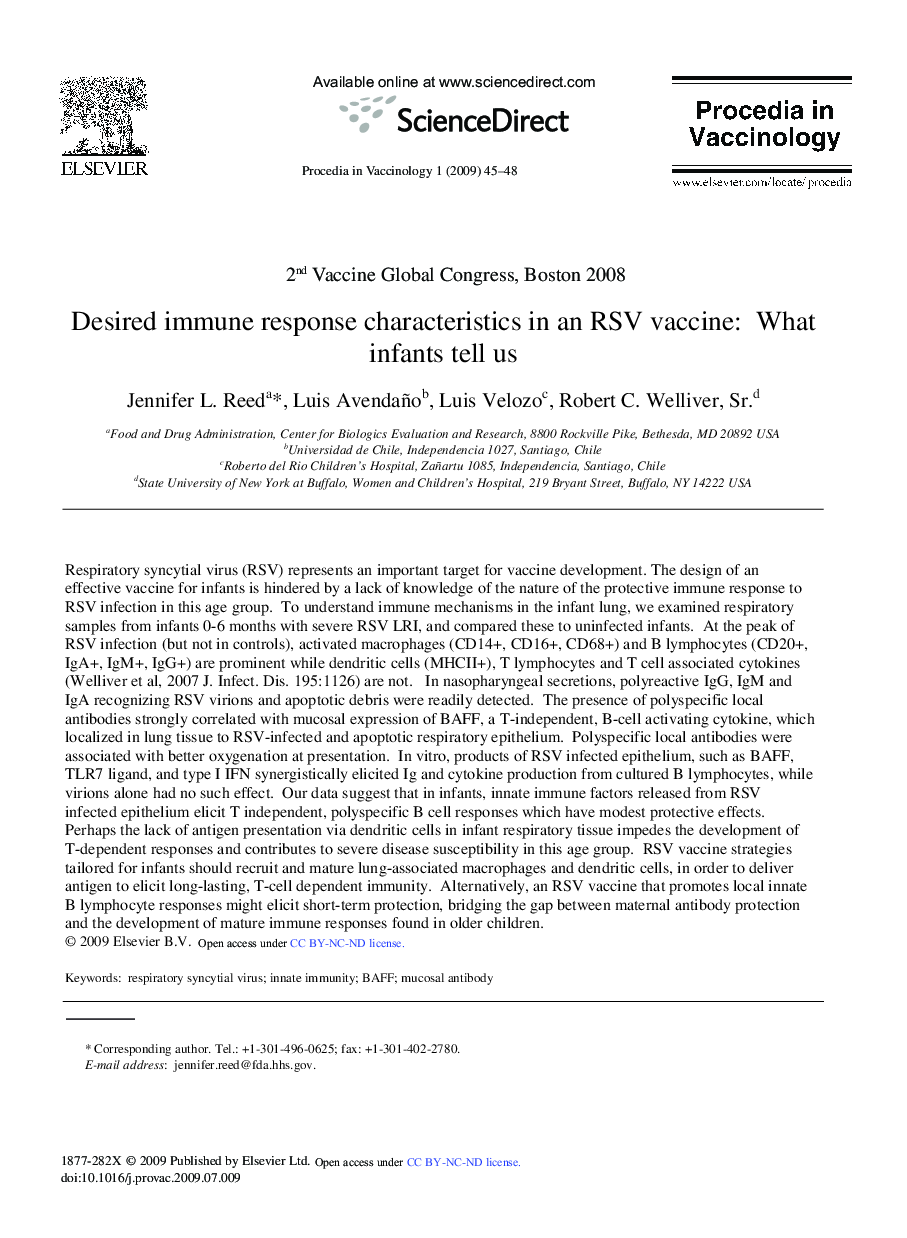| Article ID | Journal | Published Year | Pages | File Type |
|---|---|---|---|---|
| 2473855 | Procedia in Vaccinology | 2009 | 4 Pages |
Respiratory syncytial virus (RSV) represents an important target for vaccine development. The design of an effective vaccine for infants is hindered by a lack of knowledge of the nature of the protective immune response to RSV infection in this age group. To understand immune mechanisms in the infant lung, we examined respiratory samples from infants 0-6 months with severe RSV LRI, and compared these to uninfected infants. At the peak of RSV infection (but not in controls), activated macrophages (CD14+, CD16+, CD68+) and B lymphocytes (CD20+, IgA+, IgM+, IgG+) are prominent while dendritic cells (MHCII+), T lymphocytes and T cell associated cytokines (Welliver et al, 2007 J. Infect. Dis. 195:1126) are not. In nasopharyngeal secretions, polyreactive IgG, IgM and IgA recognizing RSV virions and apoptotic debris were readily detected. The presence of polyspecific local antibodies strongly correlated with mucosal expression of BAFF, a T-independent, B-cell activating cytokine, which localized in lung tissue to RSV-infected and apoptotic respiratory epithelium. Polyspecific local antibodies were associated with better oxygenation at presentation. In vitro, products of RSV infected epithelium, such as BAFF, TLR7 ligand, and type I IFN synergistically elicited Ig and cytokine production from cultured B lymphocytes, while virions alone had no such effect. Our data suggest that in infants, innate immune factors released from RSV infected epithelium elicit T independent, polyspecific B cell responses which have modest protective effects. Perhaps the lack of antigen presentation via dendritic cells in infant respiratory tissue impedes the development of T-dependent responses and contributes to severe disease susceptibility in this age group. RSV vaccine strategies tailored for infants should recruit and mature lung-associated macrophages and dendritic cells, in order to deliver antigen to elicit long-lasting, T-cell dependent immunity. Alternatively, an RSV vaccine that promotes local innate B lymphocyte responses might elicit short-term protection, bridging the gap between maternal antibody protection and the development of mature immune responses found in older children.
